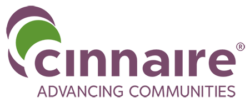Permanent Supportive Housing
"Supportive housing is a known strategy, but what we're doing is taking the model and twisting it to serve folks who are trying to recover from opioid addiction. The PRSH model is the first step in holistically addressing this crisis. With public and private resources, we can create affordable housing communities that not only allow those suffering to recover, but provide supportive services, job training and reunification with families."
Mark McDaniel, Cinnaire CEO
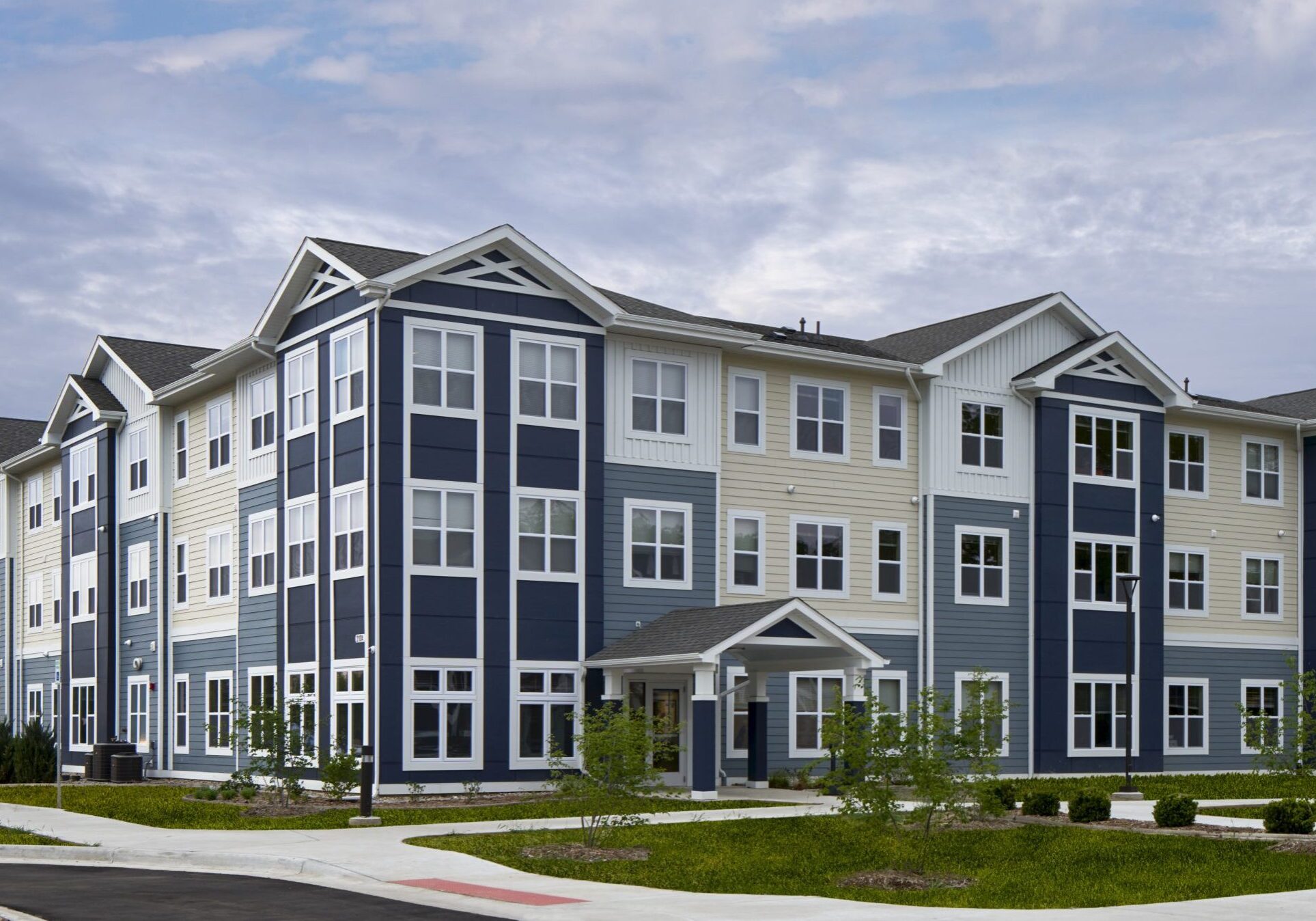
Breaking the Cycle of Homelessness
Permanent supportive housing programs have been shown to be an effective intervention for people who experience barriers to finding and maintaining stable housing.
This successful model links quality, safe, affordable housing with flexible, voluntary support services designed to help individuals or families stay housed and live more stable and productive lives. The services are designed to connect people with community-based health care, treatment and employment services, enabling them to build independent living skills.
Supportive Housing programs are proven to have a positive impact on a range of populations, including veterans, homeless families and substance users. Studies have shown that permanent supportive housing not only increases housing stability, but also reduces the demand for publicly-funded crisis services, including shelters, hospitals, psychiatric centers, jails, and prisons.
Cinnaire’s permanent supportive housing projects often include individual, affordable housing units for families. With these, there is no time limit to leases and families can remain as long as they meet tenancy requirements. This is particularly important for the well-being of children, who often suffer a lifetime of challenges as a result of housing instability.
A study by the National Health Care for the Homeless Council found that children living in poverty, including those experiencing homelessness, have a higher likelihood of Adverse Childhood Experiences (ACEs)
including abuse, neglect, mental illness and economic hardship. These children are more likely to experience anxiety and depression, developmental delays, socioemotional health issues, academic challenges, behavioral issues, and health challenges.
Providing families a secure place to live with interventions to reduce trauma-inducing experiences through programs that address mental illness, substance use, disorders, parenting skills and financial instability have been shown to improve developmental outcomes for homeless children and reduce generational homelessness.
It Takes A Village
Cinnaire has embraced the permanent supportive housing model, forming relationships with critical partners dedicated to providing services based on targeted audiences.
Andy's Place in Jackson, MI, addresses the need for long-term, safe, affordable housing paired with onsite support services for individuals suffering from opioid addiction. Andy's Place is the first Permanent Recovery Supportive Housing development in Michigan, and the first in the nation, designed to address recovery holistically.
It is a 50-unit housing unit that offers comprehensive onsite support services, including case management and recovery programs funded and managed by the Michigan Drug Treatment Courts along with recreational and life skills programs, financial health and employment classes, and sober and wellness activities.
The creation of Andy's Place the result of a collaboration among Mike Hurst, a recovery advocate following the loss of his son Andy; the Michigan Association of Treatment Court Professionals; Cinnaire, the Michigan State Housing Development Authority (MSHDA); the Michigan Department of Health and Humans Services (MDHHS); and the Michigan Governor's office.
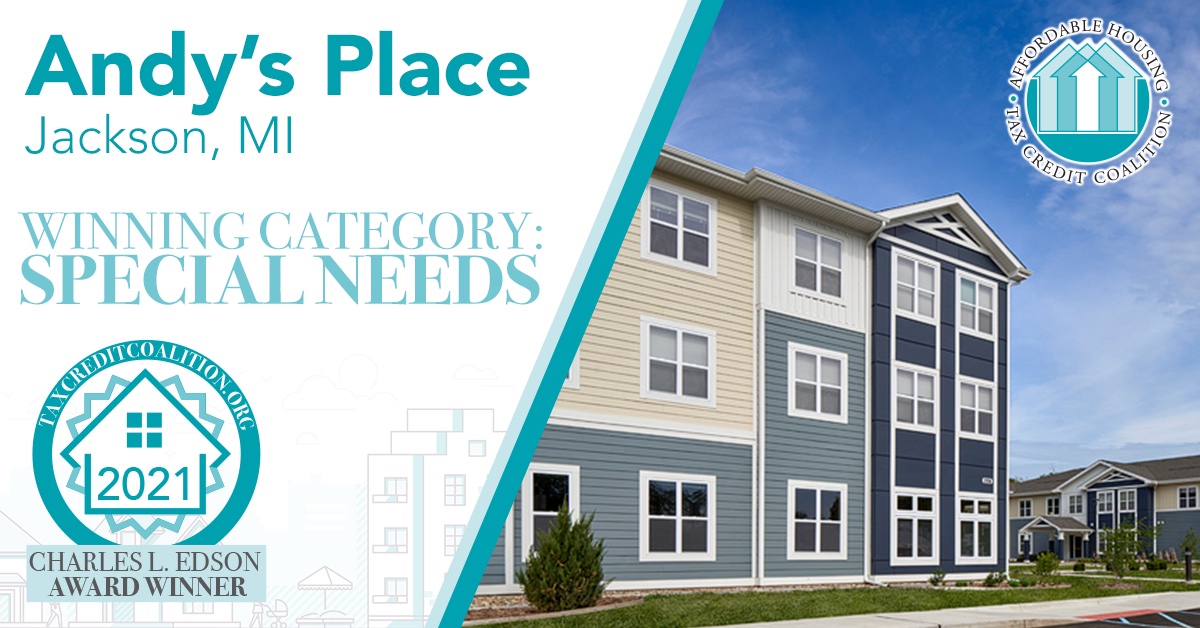
Andy’s Place received the 2021 Charles L. Edson Tax Credit Excellence Award in the Special Needs Category.
Cahill Place, in Minnesota, is a 40-unit PSH project for homeless families with children, established to interrupt generational homelessness. Nearly all the adults living there are third generation impoverished, struggling to overcome challenges caused by living in chaotic, unstable or violent situations. Cahill Place provides families a secure place to live and programs that address mental illness, substance use disorders, parenting skills and financial instability.
Cinnaire partnered with Center City Housing, River Heights Vineyard Church, the Dakota County Community Development Agency and Dakota County Child Welfare to provide safe, affordable housing with services that addresses residents’ mental and physical needs through case management, life skills classes, and community resources while paying particular attention to the needs of the children.
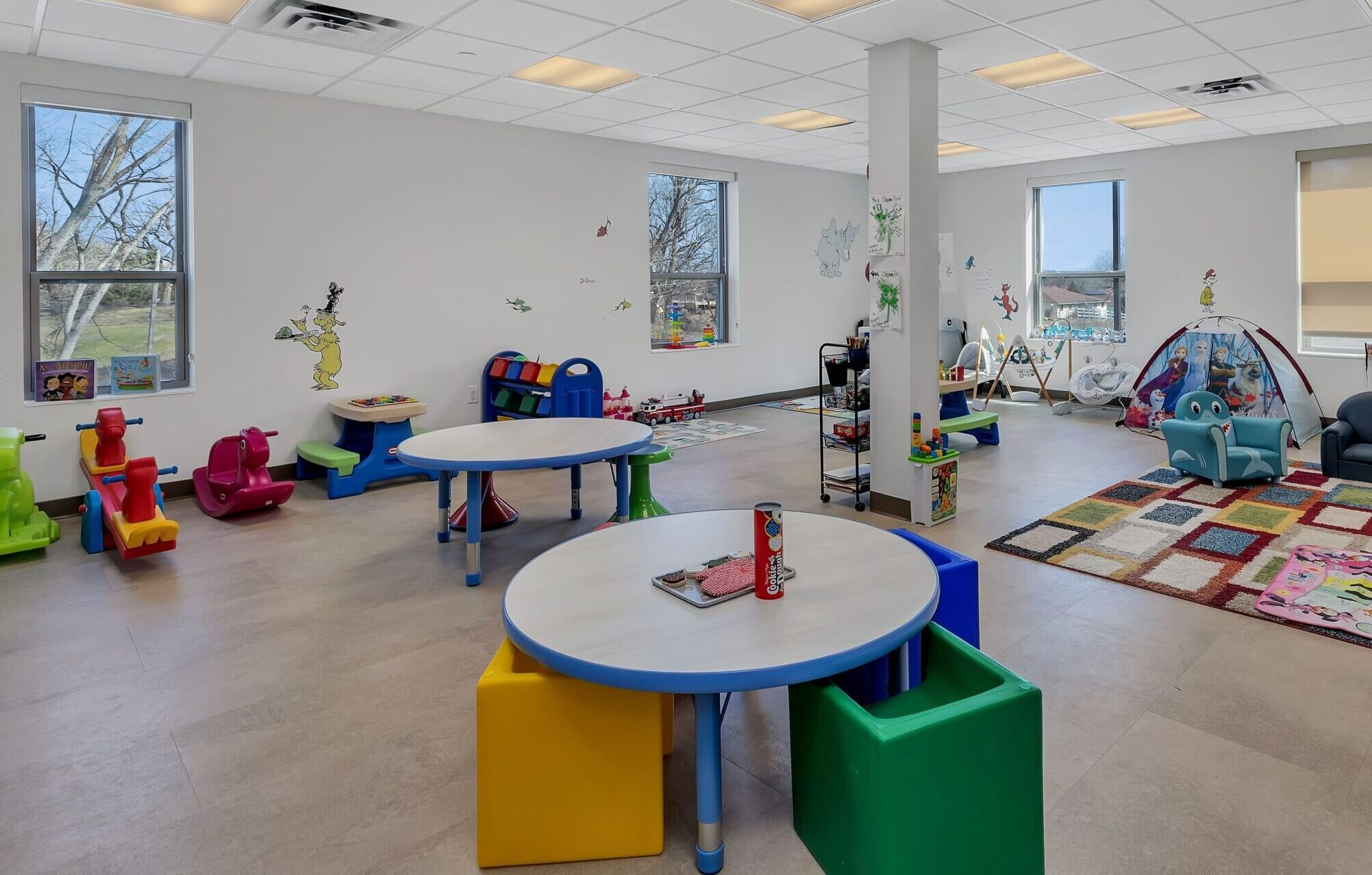
Cahill Place was a finalist in the 2022 Minnesota RE Journals' Award for Affordable Housing - Suburban.
The Meadows, in Darlington, WI, is an affordable housing development designed exclusively to support agriculture and farmworkers and their families.
Lafayette County is home to a booming agricultural industry that provides more than half of the jobs in the community. Many of the farmworkers Spanish speaking legal immigrants, with family members with some developmental, physical, sensory, medical, or mental health disabilities.
Cinnaire Solutions partnered with Cinnaire Solutions partnered with Southwestern Wisconsin Community Action Program (SWCAP) and the Multicultural, Community Connections Free Clinic outreach program to provide services to tenants including assistance with healthcare needs, English language skills, nutrition education, legal issues, child care and education, and life skills. The development is the first of its kind in Wisconsin to combine the USDA RD Farmworker housing loan with WHEDA tax credits to improve the lives of this vital population.
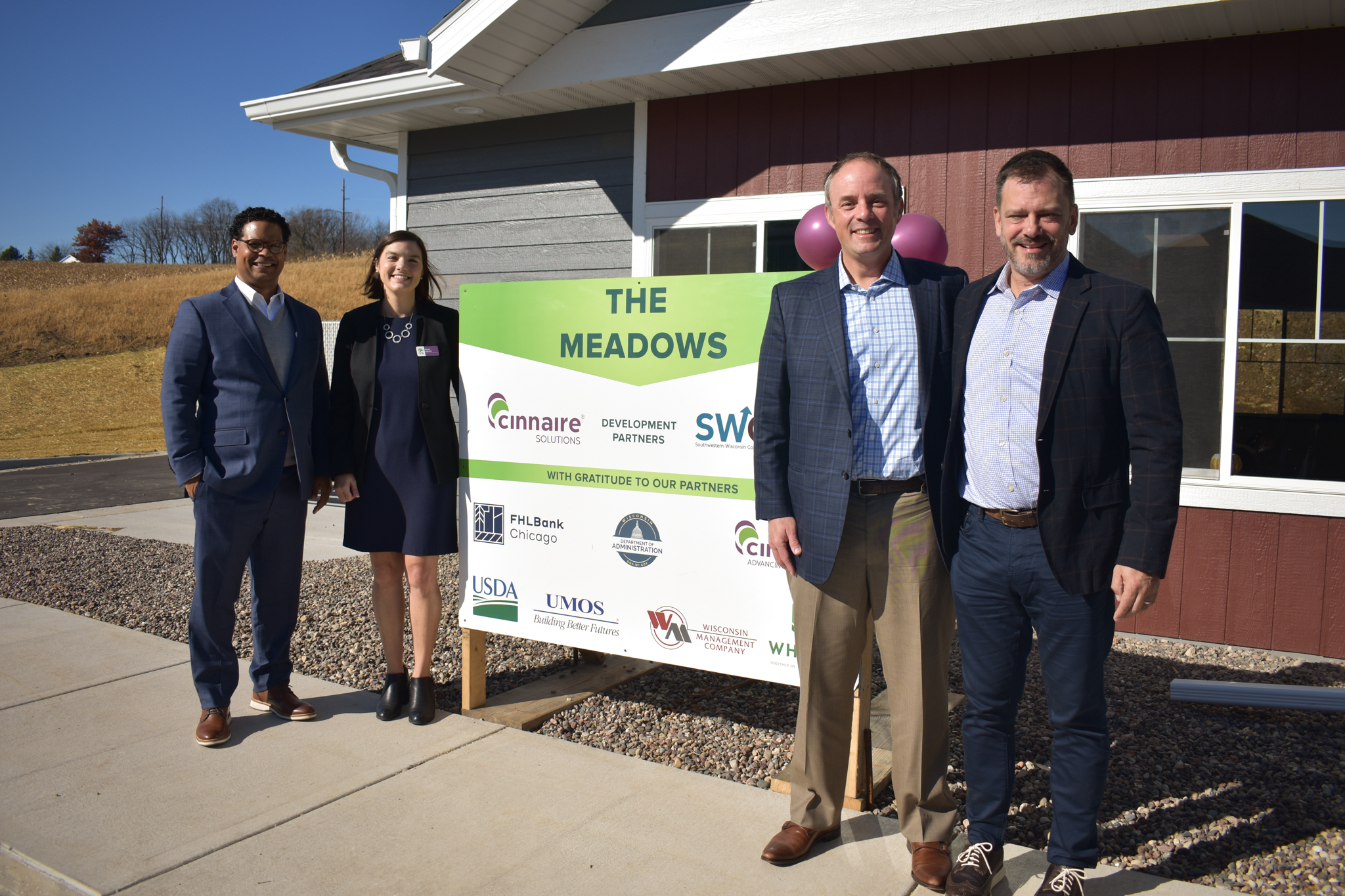
The Meadows received the Wisconsin Rural Partners, Inc. 2023 Top Rural Development Initiative award.
Piquette Square is a 150-unit apartment project in Detroit designed to house and care for homeless veterans. Developed by Southwest Solutions, Piquette Square offers mental health counseling, substance abuse treatment, on-site job training, computer labs, educational programs and other supportive services to help homeless veterans develop healthy and independent living skills. When new residents move in, they are provided with furniture, food and necessities.
Chery Allen, Veterans and Volunteer Resource Facilitator at Southwest Solutions, works with the Veteran residents at Piquette Square. “When people come to us, a lot of the time their issues with homelessness are not alcohol, drug, or prostitution driven. A lot of people that come to us have come from circumstances beyond their control. We have Veterans living at Piquette that are not yet emotionally, mentally or physically able to go to work. Some of them may never be able to return to work. They are safe here, they aren’t living on the streets or under a bridge. But we also have a large pool of Veterans that are eager and willing to work.”
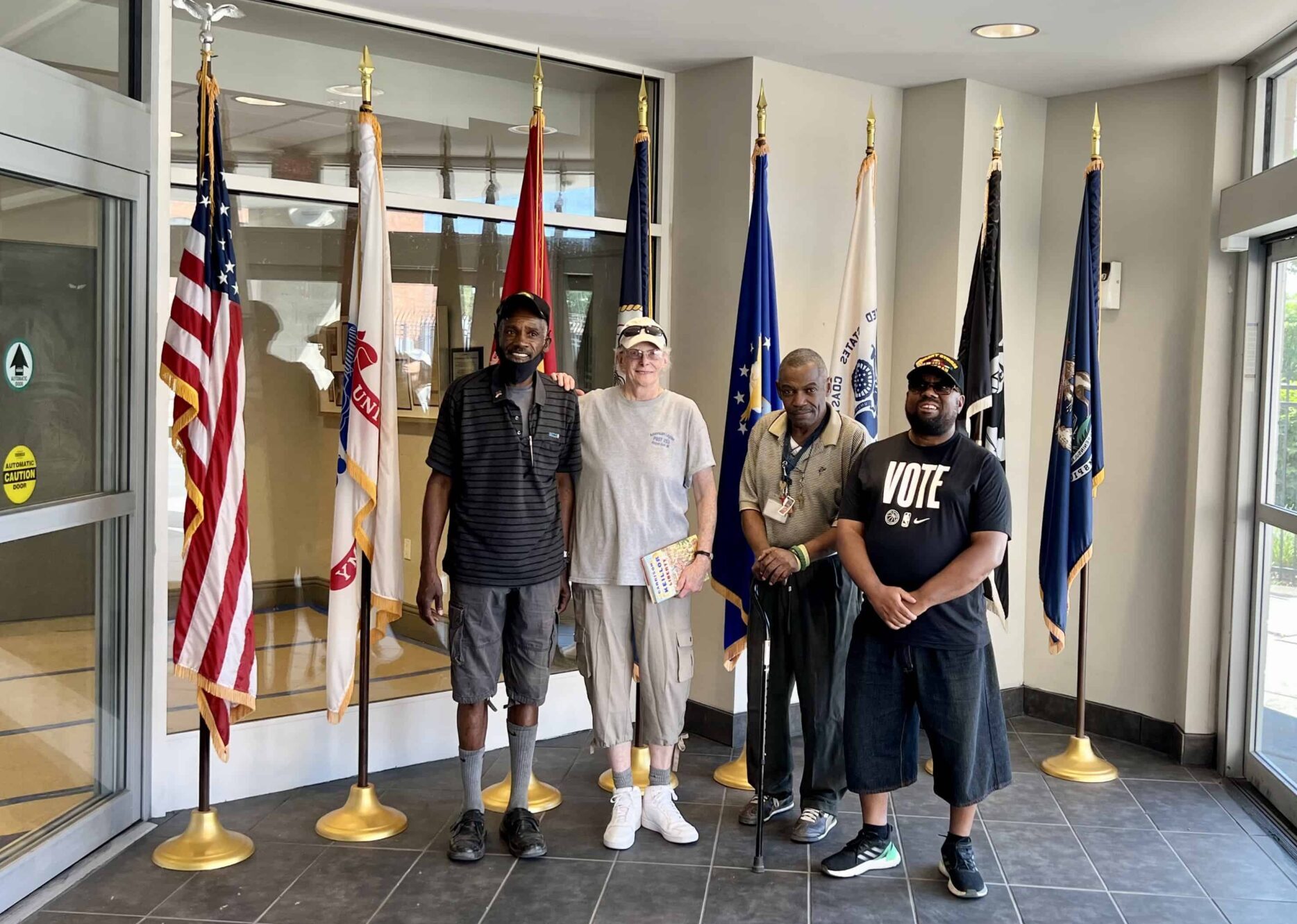
Read more about Cinnaire's investments into Veterans' housing on our Veterans Initiatives webpage.
Our Locations
Lansing
1118 South Washington
Lansing MI, 48910
Indianapolis
201 North Illinois Street
Suite 1530
Indianapolis IN, 46204
Wilmington
100 W. 10th Street, Suite 502
Wilmington, DE 19801
Chicago
225 West Washington
Suite 1350
Chicago, IL 60606
Madison
10 E. Doty Street, Suite 617
Madison, WI 53703
Grand Rapids
100 Cesar E. Chavez Ave.
Suite 202
Grand Rapids, MI 49503
Detroit
2111 Woodward Avenue, Suite 600
Detroit, MI 48201
